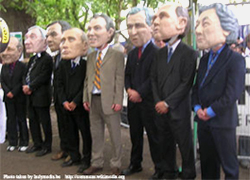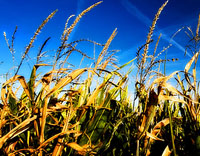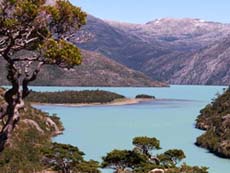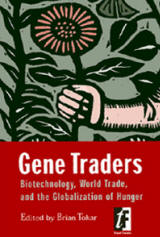ENVIRONMENT These are articles previously published by Toward Freedom related to this category.

G8: The Anti-Climate Summit
While drafting the so-called Bali Roadmap during the UN Conference on climate change last December, delegates faced a painful choice. They could specifically mention the necessity of reducing greenhouse gas (GHG) emissions by 25-40% by 2020 and face the possibility of a U.S. walkout from the negotiations. Or they could drop all mention of targets to keep Washington in the negotiations - and risk of the United States fatally obstructing the process of coming up with a tough regime of mandatory emissions cuts that would have to be in place by the UN's climate meeting in Copenhagen in December 2009.




